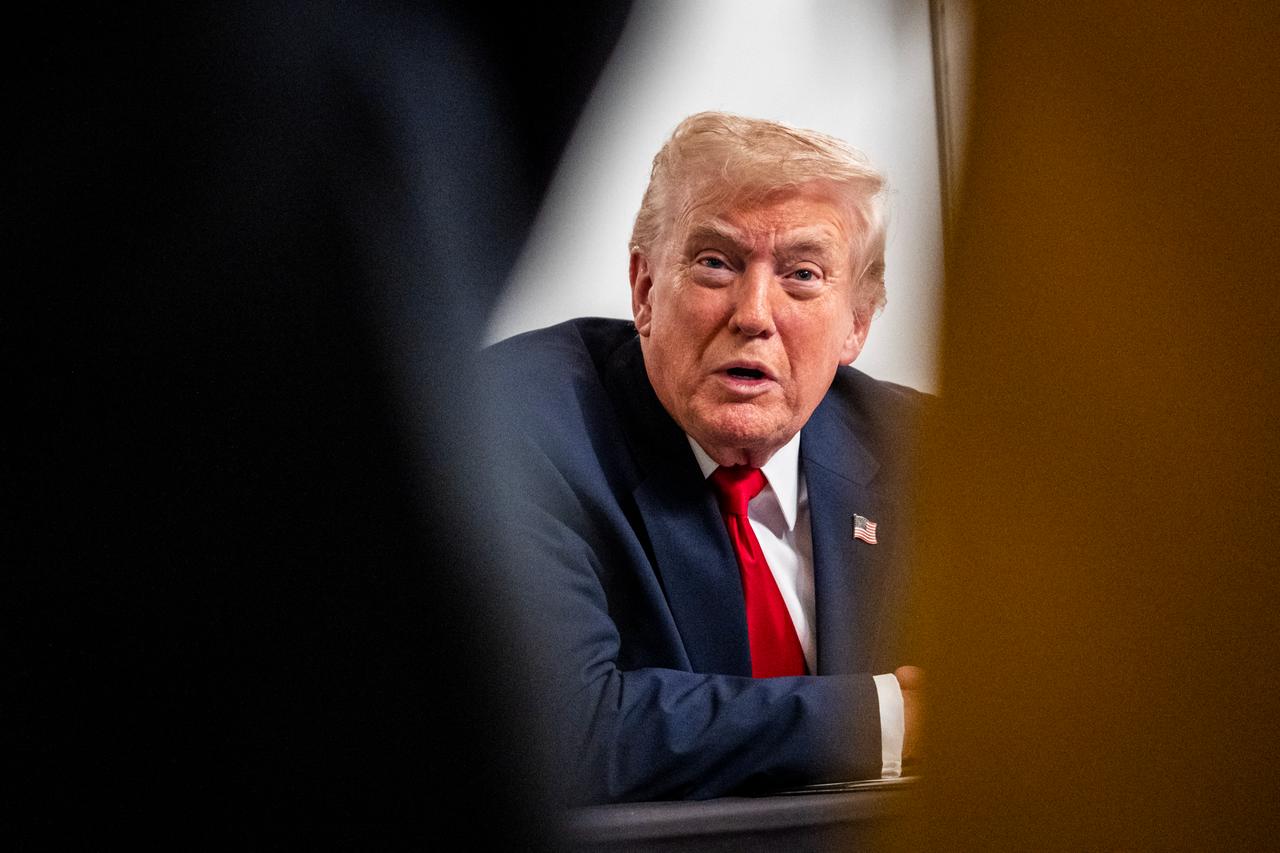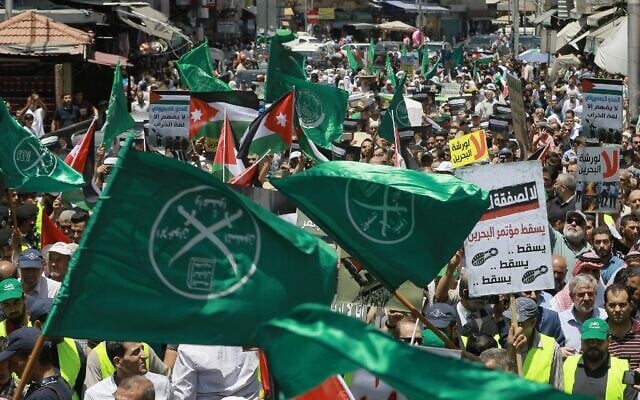
Earlier this week, following President Donald Trump's executive order, the State and Treasury Departments were instructed to conduct a 75-day interagency review to determine whether Muslim Brotherhood (Ikhwan) branches in Egypt, Lebanon, and Jordan should be designated as Foreign Terrorist Organizations (FTOs) or Specially Designated Global Terrorists (SDGTs).
This marked a pivotal moment for U.S. foreign policy toward the Middle East, signaling a significant change in Washington's approach.
Trump has been eager to designate Islamic movements as terrorist organizations since his first term but failed in 2017.
As a result, the decision goes beyond the immediate security rationale to be viewed as a manifestation of broader structural changes in international relations.
In other words, it can be argued that the designation is a strategic component of a geopolitical realignment. The aim is to marginalize non-state actors and reshape regional security architectures, as well as redefine religious movements within the global political landscape.
President Trump’s designation of the Muslim Brotherhood cannot be fully understood as an isolated security measure. Rather, it is the culmination of long-standing domestic pressure from a bipartisan coalition in Congress and reflects a deeper, systemic trend within the post-Arab revolution international order.
The core of this trend is the deliberate marginalization and systematic dismantling of non-state political actors in favor of a state-centric diplomatic and security model. Therefore, a systematic pattern of geopolitical marginalization exists for non-state actors, such as the Muslim Brotherhood.
This geopolitical “liquidation” is not a new phenomenon but has accelerated markedly. The policy aligns with ongoing efforts to integrate or neutralize armed factions in Syria, the financial and military pressure on Hezbollah, the comprehensive sanctions against Houthis in Yemen, and the international consensus on neutralizing Hamas following the Operation of Al-Aqsa Flood.
By linking the Brotherhood’s “military wing in Lebanon” to Hamas’ operations, the U.S. executive order constructs a monolithic security threat out of a complex, decentralized network. This oversimplification is a strategic choice, not an analytical failure, but also serves to legitimize a blanket policy against a movement that, in reality, operates diversely across national contexts—as a political party in some states, a social movement in others, and a suppressed opposition in several more.
The underlying objective is to eliminate alternative political centers of power that emerged from the 2011 uprisings. These movements, capable of mass mobilization and presenting ideological challenges to incumbent regimes, are now perceived as inherent threats to Western-led regional stability predicated on dealing with established state authorities.
Consequently, the designation functions as a tool of geopolitical engineering, aiming to strip these movements of legitimacy. It also provides a universal framework for partner states, from Egypt and Saudi Arabia to the United Arab Emirates, to intensify their domestic crackdowns. This move signals a closure of the political space that briefly opened a decade ago, forcing international relations solely on state-to-state interactions.

Trump’s decision possesses significant potential to trigger a chain reaction beyond the Middle East, particularly within the trans-Atlantic sphere. For years, the European Union has maintained a more nuanced position on the Muslim Brotherhood, refraining from a blanket designation in recognition of its varied national manifestations.
However, Washington’s move could empower political forces within key European states, such as France, Austria, and Germany, that have long advocated for a more aggressive line against Islamic movements.
A potential European shift toward criminalizing the Brotherhood would have profound implications far beyond foreign policy. It would directly impact the operational capacity of Muslim civil society organizations, charities, and advocacy groups across Europe, as many are perceived as having ideological links to the Brotherhood.
This could lead to a restrictive security environment that stigmatizes political participation and civic engagement by Muslim communities, intertwining religious and political activism with terrorism.
The delicate balance between security and civil liberties would be tested, potentially alienating segments of the European populace and accelerating the very societal fractures that extremist groups seek to exploit.
Furthermore, this creates a complex diplomatic landscape for NATO allies. For a country like Türkiye, which hosts various media outlets and figures associated with the Brotherhood, the designation frames its policy as a potential liability within the alliance. It presents Ankara with a stark choice: align with the upcoming U.S.-led, state-centric security paradigm and risk its historical ties to Islamic movements, or resist and face renewed diplomatic isolation reminiscent of the post-Arab revolution period of tensions.
Alternatively, Ankara needs to find a third way to overcome this pressure or dilemma by creating an improved balance of power with its diplomatic, military power and alliances.
The designation is directly linked to the current redesign of the regional order, particularly concerning Gaza’s future. The U.S. administration frames the Muslim Brotherhood as the "central structure" of a destabilizing chain of non-state actors, with Hamas being its most critical link.
Neutralizing the Brotherhood is thus presented as a prerequisite for the “preventive stability” sought by the U.S. and its regional partners, particularly in fragile states such as Jordan and Lebanon, where the Brotherhood represents a significant political and social force.
This coercive pressure, however, also forces strategic crossroads for Islamic movements themselves. The designation could accelerate the process of necessary political transformation.
Traditional Islamist movements, particularly those within the Brotherhood’s tradition, are now compelled to choose between marginalization and adaptation. The path to survival and relevance may lie in a decisive shift toward increasing transparency, institutionalization, and a clearer focus on party politics within national frameworks.
The example of Yemen's Al-Islah party or the evolving posture of Tunisia's Ennahda demonstrates that integration, however challenging, is possible. Hamas faces an even more profound existential reckoning.
For Türkiye, this regional transformation presents a dual matrix of risks and opportunities. On the one hand, Ankara could leverage its alignment with the broader “liquidation” trend to advance its own core security interests, such as gaining broader international support for its campaign against the PKK and its Syrian affiliate, the PYD/YPG.
On the other hand, it must carefully recalibrate its relationships with traditional Islamic movements to avoid strategic overextension and diplomatic isolation. The outcome of this recalibration will have a significant impact on Türkiye's role in the evolving Middle Eastern landscape.
To sum up, Trump's designation attempt represents a strategic gamble to redesign the Middle East into a more state-centric form, revealing a dilemma for Islamic movements: whether to adapt to this challenge or face political obliteration.